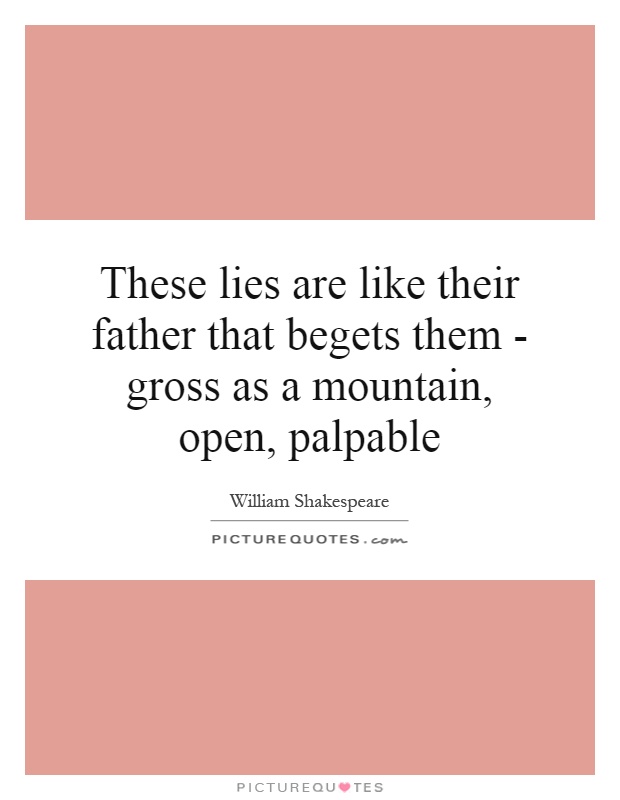These lies are like their father that begets them - gross as a mountain, open, palpable

These lies are like their father that begets them - gross as a mountain, open, palpable
In William Shakespeare's play "King Lear," the character Kent utters the line, "These lies are like their father that begets them - gross as a mountain, open, palpable." This powerful statement reflects the theme of deception and betrayal that runs throughout the play.The lies that Kent is referring to are the deceitful actions of Lear's daughters, Goneril and Regan, who manipulate their father in order to gain power and control. Kent compares these lies to their father, suggesting that they are just as monstrous and obvious as Lear himself. The imagery of a mountain emphasizes the enormity and weight of these lies, while the word "palpable" suggests that they are tangible and easily perceived.
The idea of lies being like their father also speaks to the idea of deception being passed down through generations. Lear's own actions and decisions have consequences that reverberate throughout his family, leading to a cycle of betrayal and deceit. This theme of familial betrayal is a central aspect of "King Lear," as Lear's relationships with his daughters are ultimately destroyed by their lies and manipulation.
The line also highlights the idea of truth and honesty being essential virtues. Kent, as a loyal and honorable character, is disgusted by the lies and deceit that surround him. He recognizes the destructive power of falsehoods and strives to uphold the values of honesty and integrity. In a world filled with deception and treachery, Kent stands as a beacon of truth and righteousness.
Overall, Kent's statement encapsulates the central themes of deception, betrayal, and the consequences of dishonesty in "King Lear." It serves as a reminder of the destructive power of lies and the importance of honesty in maintaining relationships and upholding moral values. Shakespeare's exploration of these themes continues to resonate with audiences today, making "King Lear" a timeless and enduring work of literature.












 Friendship Quotes
Friendship Quotes Love Quotes
Love Quotes Life Quotes
Life Quotes Funny Quotes
Funny Quotes Motivational Quotes
Motivational Quotes Inspirational Quotes
Inspirational Quotes